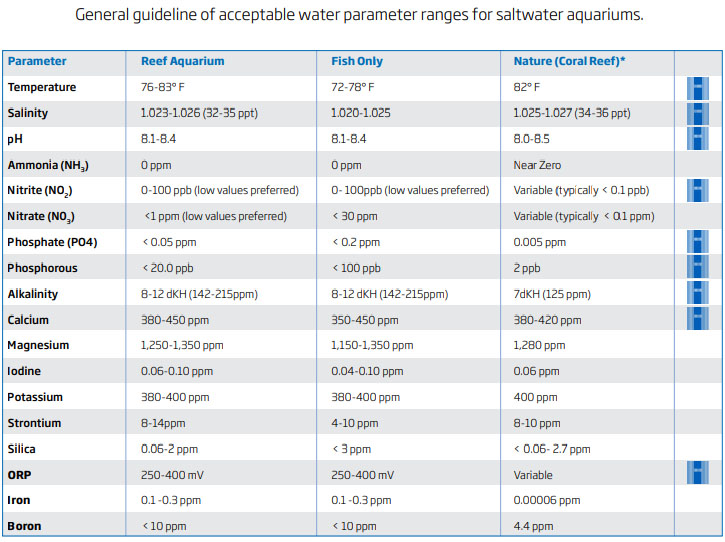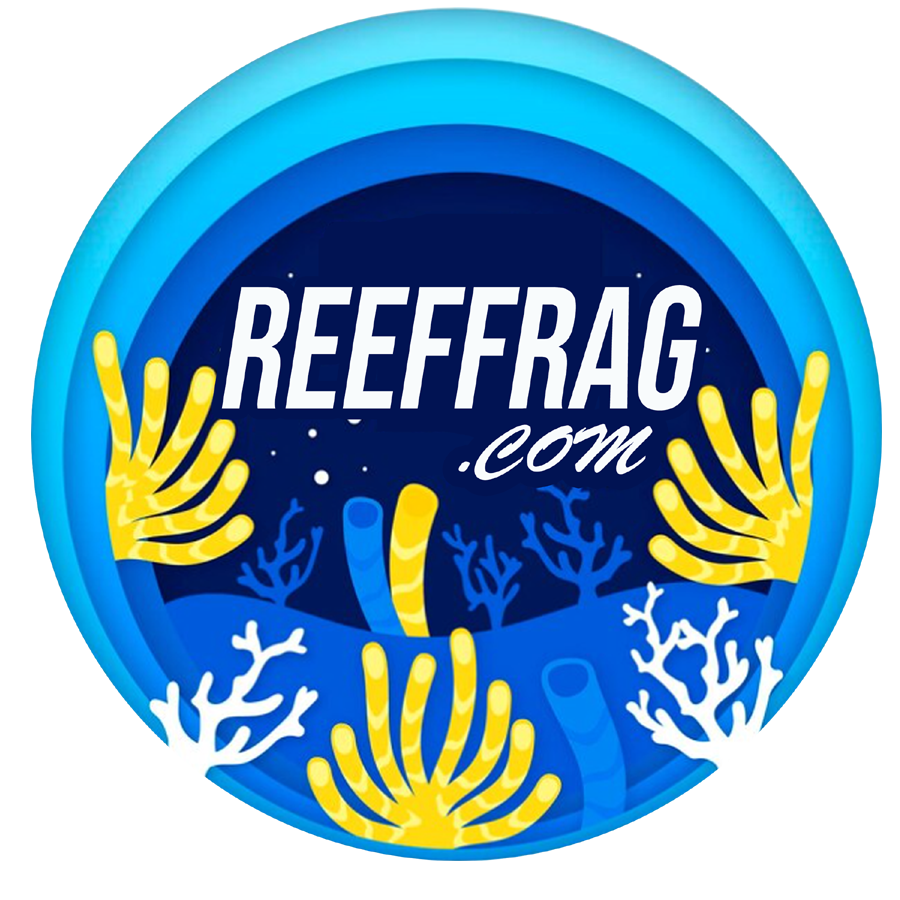
Saltwater Aquarium Fish for Sale
Angelfish, Frogfish, Anthias, Basslets, Blennies, Butterflyfish, Cardinalfish, Chromis & Damselfish, Clownfish, Dottybacks, Dragonets, Dwarf Angelfish, Filefish, Foxface & Rabbitfish, Hawkfish, Pufferfish, Gobies, Tangs & Surgeonfish, Triggerfish, Wrasse

FROM OUR REEF TANK TO YOURS
Welcome to Reeffrag!
"At Reeffrag, we are passionate about the world of coral reefs and are committed to providing our customers with the most vibrant and healthy coral fragments to beautify and enrich their marine aquariums. With years of experience in coral aquaculture and a deep understanding of marine ecosystems, we take pride in offering a wide selection of sustainably cultivated coral fragments carefully chosen to ensure the highest quality and vitality. Whether you're an enthusiastic hobbyist or a seasoned expert, at Reeffrag, you'll find everything you need to create and maintain a lush and vibrant coral reef in your own home. Join us on this exciting underwater adventure and discover the beauty and wonder of the coral world with Reeffrag. Explore our collection today!
Anyone can maintain a reef tank, even a beginner, with some knowledge.Here are some things to consider when starting a reef tank:
Here are some things to consider when starting a reef tank:
We recommend a tank between 20 and 100 gallons to get started, a mix of easy-to-keep fish like Clownfish, and Soft Corals. Stick to that and you'll just need to test the water a few times per week, change some water once a week, clean the tank glass once a day, and clean equipment once a month.
The secret to keeping Acropora and SPS
Keeping Acropora and other small polyp stony (SPS) corals in a reef aquarium can be challenging, but with the right approach and consistent care, it is achievable. Here are the key factors to ensure the health and growth of these corals:
1. Stable Water Parameters
2. Strong and Consistent Lighting
3. Efficient Water Flow
4. Nutrient Management
5. Regular Water Changes
6. Supplementation and Dosing
7. Proper Placement and Acclimation
8. Pest and Disease Control
9. Consistent Monitoring and Maintenance
10. Patience and Observation
1. Stable Water Parameters
- Alkalinity: 7-11 dKH, with minimal fluctuations.
- Calcium: 400-450 ppm.
- Magnesium: 1250-1350 ppm.
- pH: 8.1-8.4.
- Salinity: 1.025-1.026 specific gravity.
- Temperature: 75-80°F (24-27°C).
- Nitrate: Below 5 ppm.
- Phosphate: Below 0.03 ppm.
2. Strong and Consistent Lighting
- Acropora and other SPS corals require high-intensity lighting. LED, T5, or metal halide lights are commonly used. Ensure that the light spectrum includes sufficient blue and actinic wavelengths, which are crucial for coral health and coloration.
- PAR Levels: Aim for 250-450 µmol/m²/s, depending on the specific needs of the species and the depth at which they are placed.
3. Efficient Water Flow
- Strong, randomized water flow is essential for SPS corals. This helps remove waste, bring in nutrients, and ensure gas exchange.
- Use powerheads or wave makers to create a turbulent environment rather than a direct, laminar flow.
4. Nutrient Management
- Maintain low nutrient levels without stripping the water completely of nitrates and phosphates, as SPS corals still need some nutrients for growth.
- Employ protein skimmers, refugiums, and possibly reactors (e.g., GFO for phosphate removal) to manage nutrients.
5. Regular Water Changes
- Perform regular water changes (10-20% weekly or bi-weekly) to replenish trace elements and maintain water quality.
6. Supplementation and Dosing
- Regularly test and dose calcium, alkalinity, and magnesium. Automated dosing systems can help maintain stability.
- Trace elements like strontium, iodine, and potassium may be necessary but should be dosed carefully and based on regular testing.
7. Proper Placement and Acclimation
- Acclimate new corals to the lighting and flow conditions of your tank gradually to prevent shock.
- Place SPS corals in areas with strong lighting and water flow. Start lower in the tank and move them up over time.
8. Pest and Disease Control
- Inspect new corals for pests like Acropora-eating flatworms (AEFW) and red bugs. Quarantine and dip corals before introducing them to the main tank.
- Maintain good tank husbandry to prevent the spread of disease.
9. Consistent Monitoring and Maintenance
- Regularly test water parameters and make adjustments as needed.
- Clean equipment and perform maintenance on skimmers, pumps, and lighting fixtures.
10. Patience and Observation
- Monitor coral health closely. Look for signs of stress such as changes in color, polyp extension, or tissue recession.
- Be patient; SPS corals grow slowly and require stable conditions to thrive.
Coral Frags

SPS Frags
Montipora require both clean water and consistent high levels of major ions to maintain their growth rate.

LPS Frags
Large Polyp Stony corals tend to have very large, fleshy bodies which inflate with water and hide the skeleton underneath.

Acropora Frags
Acropora Coral are one of the more difficult corals to keep but can also be the most rewarding.

Dosing
In a reef aquarium, there are several essential elements and compounds that may need to be dosed to maintain optimal water parameters for coral health and growth. These elements include:
- Calcium: Corals use calcium to build their skeletons. Calcium levels need to be maintained between 380-450 ppm (parts per million).
- Alkalinity (Carbonate Hardness): Alkalinity helps to stabilize pH and provides carbonate ions necessary for coral skeleton formation. Alkalinity levels should typically be between 7-11 dKH (degrees of carbonate hardness).
- Magnesium: Magnesium is important for the proper formation of calcium carbonate skeletons and helps to maintain the correct calcium-to-magnesium ratio in the water. Magnesium levels should be kept between 1200-1350 ppm.
- Strontium: Strontium is utilized by corals to aid in skeleton growth. Levels should be maintained around 8-10 ppm.
- Trace Elements: Various trace elements, such as iodine, iron, manganese, and others, are essential for coral health and growth. These elements can become depleted over time and may need to be supplemented through dosing.
"Testing the water before dosing any element is a critical step in maintaining a healthy and balanced aquarium environment. By testing the water parameters regularly, aquarium hobbyists can accurately assess the current state of their tank and determine if any adjustments are necessary."
305.934.9259
coralreeffrag@gmail.com
Sunrise, Fl. 33322

